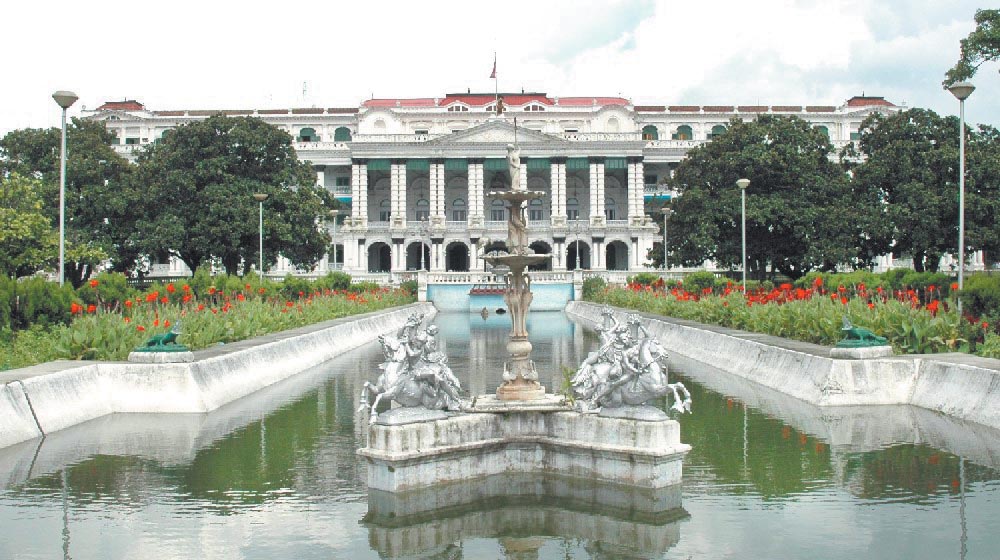Private sector loses confidence in govt
Yadav sees representatives of the private sector as rent-seekers..., whereas Khatiwada does not take healthy criticism as feedback
Kathmandu, December 4
A year after restoration of democracy in 1990, 136 small, medium and large enterprises were registered in Nepal. This was a landmark in the country’s industrial sector as only 44 enterprises had been registered in the years before that.
The following year (fiscal 1991-92) turned out to be even more promising, with Nepal seeing registration of 437 enterprises, a three-fold increase from 1990-91. The craze for starting a business did not peter out the next year as well, and 1992-93 saw registration of 606 enterprises -- a record which has not been broken till date. How many of these enterprises came into operation is not known, but a sharp hike in firm registration at that time showed investors’ confidence in the economy.
Before democracy’s restoration in 1990, opening a firm was a privilege enjoyed by a few. This was the same with imports and exports. The democratic government formed after 1990 dismantled this Licence Raj, opening the floodgates for the private sector to penetrate a plethora of areas. This shift in attitude towards the private sector sparked enthusiasm among people who had money but were restricted from investing it freely.
This change in perception towards the private sector was followed by broad reforms and introduction of liberal policies, beginning an era of structural reforms. But rather than structural reforms -- which generally take a long time to generate results -- it was, to paraphrase renowned economist Dani Rodrik, a simple pro-business shift, as against pro-market shift, that instantly lifted investor confidence. This helped the economy to take off rapidly, helping Nepal attain average annual growth rate of five per cent per annum between 1990-91 and 1999-2000. This decadal growth rate is highest since democracy’s restoration in 1990.
This is an example that small changes, or targeted rather than broad reforms, can bring about big changes in an economy facing multiple problems.
Many were hoping that the private sector would receive a similar shot in the arm after the government led by KP Sharma Oli, which is the strongest in Nepal’s modern history, came to power. Unfortunately, these hopes have been dashed by “the government’s lack of trust in the private sector”, according to industrialists.
Two key people in the government who can change the country’s economic landscape are Finance Minister Yubaraj Khatiwada and Industry Minister Matrika Prasad Yadav.
“But Yadav sees representatives of the private sector as rent-seekers and only talks about putting them behind bars, whereas Khatiwada does not take healthy criticism as feedback and is hostile towards the private sector,” one industrialist said on condition of anonymity.
Obviously, there are bad apples in the private sector. “But generalisation is not fair,” said another industrialist.
THT talked to industrialists to get their perspective on economic performance and gauge private sector confidence. In private, many voiced frustration. But most of them did not dare to speak out, fearing repression from the “strong” government -- something not seen in recent years. This fear factor and lack of measures to stimulate the economy have created uncertainty over Nepal’s economic prospects, prompting postponement of investment decisions.
“Things would have been different had the government jumped into action right after it came to power when many were optimistic about Nepal’s future,” said Hari Bhakta Sharma, president of the Confederation of Nepalese Industries. “The government missed that window of opportunity, which will cost it dearly.”
Not surprisingly, Khatiwada recently revised the country’s growth target for this fiscal to around six per cent from eight per cent.
“The government has very little time to make amends as it has spent almost a year doing nothing. In a year or two, the ruling party needs to hold general convention which will consume time and after three years preparations for the next general election will begin,” said Biswo Poudel, a University of California, Berkeley-educated economist, who teaches at Kathmandu University.






